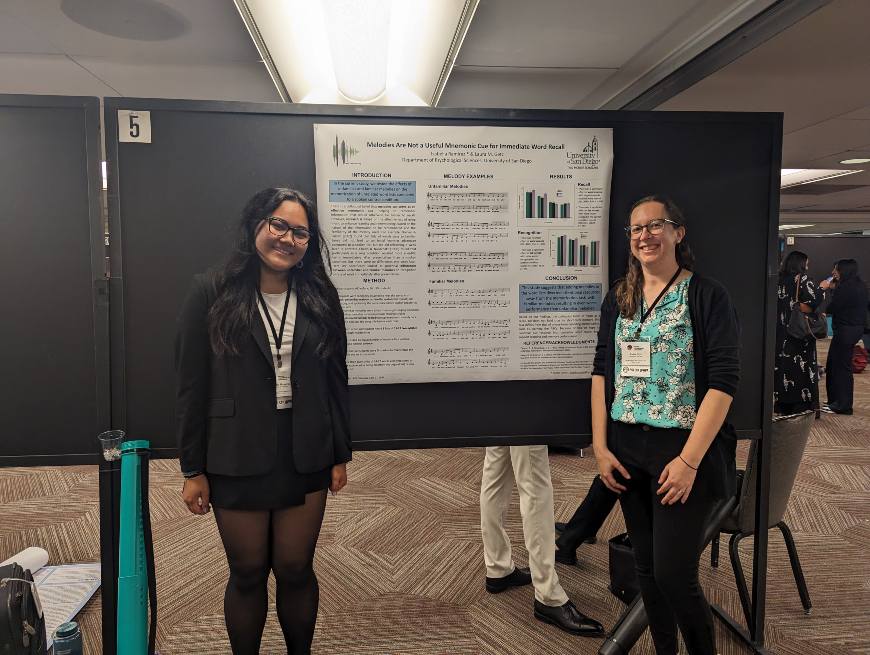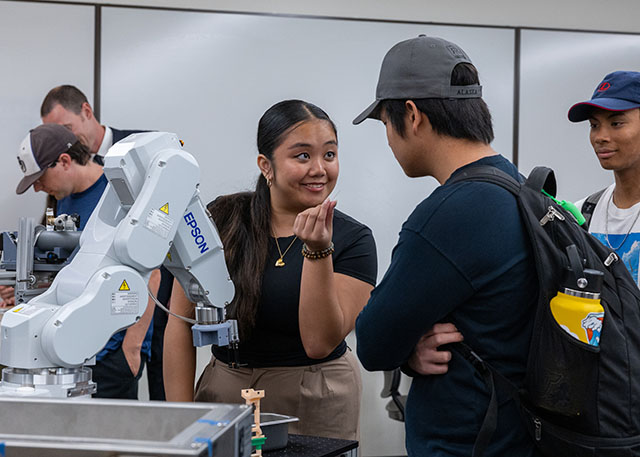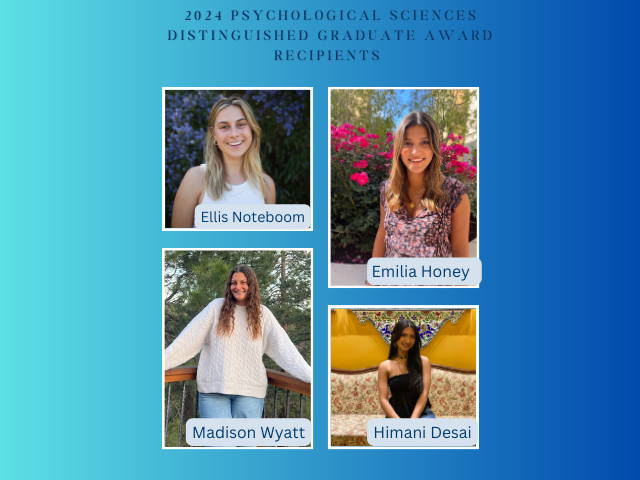STAR Award and McNair Scholar Recipient Isabella Ramirez Presents Research at WPA Convention
 Isabella Ramirez and Laura Getz, PhD, with Ramirez's poster
Isabella Ramirez and Laura Getz, PhD, with Ramirez's poster Isabella Ramirez is a junior majoring in behavioral neuroscience and minoring in comprehensive music and chemistry. With funding support from the Psychological Sciences' Student Travel Award for Research (STAR) and the McNair Scholars Award, Ramirez was able to present her research, "Melodies Are Not a Useful Mnemonic Cue for Immediate Word Recall." At the Western Psychological Association (WPA) Convention in San Francisco, CA. Attending WPA was memorable and exciting. "The Western Psychological Association Conference not only allowed me to network and learn about the incredible research being done at a University level, but also allowed me the opportunity to present the research that I have been working on for the past year. I am incredibly grateful for the opportunity to do so, especially with the funding assistance through the Department of Psychological Sciences as well as the McNair Scholars program, as well as the guidance of Dr. Laura Getz. I never thought that I would have been able to present my research in my junior year, and the experience of WPA is one I will never forget!"
Read Ramirez's abstract below:
Mnemonic devices and jingles paired with a musical melody have long been used as study skills for students to remember the capitals of the United States and other facts, as well as aiding adults in memorizing their grocery lists, people reminding themselves of English grammar rules, and various other tasks. Though this perceived phenomenon has been recognized by previous studies, research is mixed on the effectiveness of utilizing music in order to improve learning and memory. In the current study, we tested the effects of unfamiliar and familiar melodies on the memorization of unrelated word lists compared to a spoken control condition.
Participants heard word lists with two-syllable words either spoken, sung to a familiar melody (e.g. Yankee Doodle), or sung to an unfamiliar melody. After hearing each list, they were asked to freely recall the words in any order and were then asked to complete an old-new recognition task. We found that participants performed best in the spoken word condition and worst in the familiar melody condition, suggesting that adding melodies to the word lists diverted attentional resources away from the memorization task, regardless of melody familiarity.
Based on these results, we ran a second experiment with the same familiar melodies, but showed the title of the song and played the melody alone before the word list in order to ensure that the melody was familiar and eliminate the need for participants to focus on figuring out what song was being played. We found that the new familiar melodies, though recognized more easily by participants, did not enhance word list recall but rather remained significantly less memorable than the spoken word trials. These results indicate that familiar melodies may not be as effective because the new words must compete with the original words of the song, making it more difficult to remember the new words. This indicates that at least for short-term recall, the colloquial belief of music aiding memory does not hold true.
Contact:
Psychological Sciences Department
Psychology@sandiego.edu
619-260-4511



